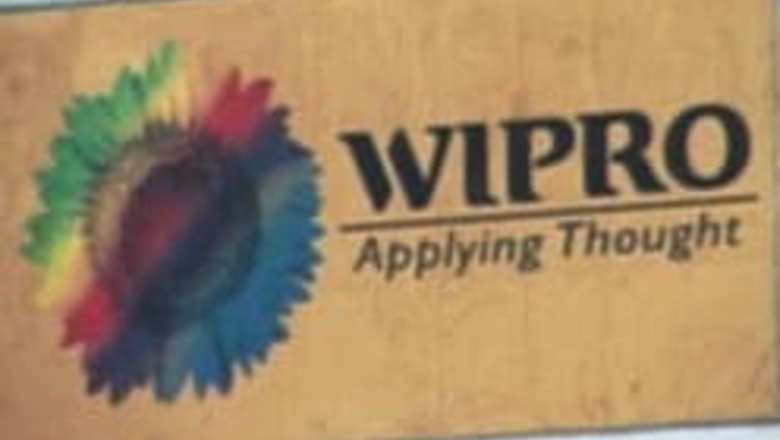
views
Washington: With outsourcing becoming an election issue, two US senators have questioned 25 top H1-B visa users, including nine Indian firms, about their recruitment process for professional workers, a majority of whom come from India.
The nine Indian companies to get the questionnaires were Infosys, Wipro, Satyam, Tata Consultancy Services, Cognizant Tech Solutions, Patni Computer Systems, I-Flex Solutions, Larson & Toubro Infotech Ltd and Mphasis Corporation.
"The H-1B programme can't be allowed to become a job-killer in America," Democrat Dick Durbin and Republican Chuck Grassley said in a letter to the top 25 firms that used nearly 20,000 of the 65,000 available H-1B visas last year.
"We need to ensure that firms are not misusing these visas, causing American workers to be unfairly deprived of good high-skill jobs here at home," they said in the letter sent April 1, the day the US Citizenship and Immigration Services began receiving H-1B visa applications for fiscal year 2009 beginning October 1, 2008.
"By the end of the day today, all of the H-1B visas for the year will likely be spoken for," Durbin and Grassley said, suggesting "that the loopholes in the H-1B and L-1 visa programmes are allowing for the outsourcing of American jobs".
Apart from the Indian companies, the 16 American organisations that got the letters included Microsoft Corporation, US Technology Resources, Intel Corporation, Accenture, Cisco Systems Ltd, Ernst & Young, Deloitte & Touche, University of Illinois at Chicago, Google Inc, Prince George's County Public Schools, JP Morgan Chase and Motorola.
"I have no doubt that we'll hear arguments all day as to why the cap on H-1B visas should be raised, but nobody should be fooled," Grassley said.
"The bottom line is that there are highly skilled American workers being left behind, searching for jobs that are being filled by H-1B visa holders," he said. "It's time to close the loopholes that have allowed this to happen and enact real reform."
The senators' campaign comes even as two recent studies by the National Foundation for American Policy (NFAP) point out that H-1B visas that bring in foreign professionals, including a large number from India, are creating jobs in the US.
The studies also supported Microsoft Chairman Bill Gates' contention that an arbitrary cap on H-1B visas is making it hard for American businesses to fill skilled positions and forcing them to outsource jobs.
The letters to companies, the senators said, are part of an effort to determine if the H-1B programme is being used for its intended purpose - to fill a worker shortage for a temporary time period.
Durbin and Grassley said they expect the companies to cooperate and answer their questions to ensure that accurate information is being used to address future reforms of the programme.
PAGE_BREAK
The H-1B visa programme allows American companies to employ temporary foreign workers in "speciality occupations", often in the high tech industry, while the L visa programme is for intra-company transfers of managers, executives and specialists.
"We understand that many employers would like Congress to make more H-1B visas available," the two senators said in the letter to the companies. "However, we must be mindful of the impact importing more foreign workers will have on American workers, especially in light of the recent economic downturn.
"We believe that before increasing the H-1B cap, Congress must close loopholes in the H-1B and L-1 programmes that harm American workers."
For example, under current law only employers that employ H-1B visa holders as a large percentage of their US workforce are required to attempt to recruit American workers before hiring a H-1B visa holder.
"Most companies can explicitly discriminate against American workers by recruiting and hiring only H-1B visa holders," the senators suggested.
This was so, they noted, as the US Department of Labour (DOL) has said: "H-1B workers may be hired even when a qualified US worker wants the job, and a US worker can be displaced from the job in favour of a foreign worker".
"Additionally, we are concerned that some companies may be circumventing the requirements of the H-1B visa programme by using other visa programmes, such as the L-1, to bring in cheaper foreign labour," the senators said.
While the L-1 visa programme allows inter-company transfers to enter the United States, experts have concluded that some companies use the L-1 visa to bypass even the minimal protections for American workers that are in the H-1B programme, they said.
Last year too, Durbin and Grassley had sent out a similar questionnaire to these companies, but the letter this time was more probing taking into account the looming recession and the spectre of job losses.
Among other things, the lawmakers wanted the companies to provide a detailed description of their recruitment process for open positions, including company policies and where they advertised, and whether priority was given to US citizens when filling open positions.
Asking if good faith efforts were made to recruit American citizens for open positions before recruiting foreign nationals, Durbin and Grassley inquired if they would support legislation prohibiting a firm from hiring additional H-1B visa holders if the same employs more than 50 people and more than 50 percent of its employees were H-1B and L-1 visa holders.
Last year the two senators had also introduced the H-1B and L-1 Visa Fraud and Abuse Prevention Act, which would require H-1B applicants to make a good faith effort to hire American workers first and would give the Department of Labour greater oversight authority in investigating possible fraud and abuse.




















Comments
0 comment